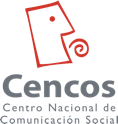Family & Friends
A Tightly Woven Web of Mexican Elites
In Mexico the media power goes hand in hand with the political power. The MOM Mexico study of 42 most influential media found that in 84% of the cases, the owners have family or business relationships with well-known politicians.
The most common are the economic relationships: between 60 and 80 percent of the media belong to conglomerates that in addition to the media also own other businesses that depend from government contracts. The media owners are also active in the construction industry, such as Grupo Empresarial Ángeles, which owns the daily newspaper Excélsior with its digital version; they own banks, such as Grupo Salinas, owner of TV Azteca; and even companies for mobile phones, such as América Móvil, which owns the website UnoTV.
9 out of 10 family owners participate in the media market for two or three generations already. For example, the origins of Grupo Televisa, the biggest television company in the country, can be traced back to the creation of Las Estrellas in 1951 –the first commercial TV channel. Seven decades after Emilio Azcárraga Vidaurreta –the grandfather of the present owner– received the concession to operate the channel from the president Miguel Alemán Valdés– it still keeps being the most watched TV channel by Mexicans. The Alemán Familiy was Televisa business partner –at least– until 1999.
The former Mexican President Enrique Peña Nieto got married with one famous actress of Grupo Televisa. The live broadcast of their wedding two years before the presidential elections was interpreted as a support and promotion of Peña Nieto by Televisa. In return, Televisa was the major beneficiary from government advertising during his six-year term. In 2016, it received 18.75% from the total budget for this purpose (2 billion pesos).
Business Partners But Also Buddies
One of biggest radio company, Grupo Radio Centro, was founded by the businessman Francisco Aguirre Jiménez, who received a concession for the TV channel Canal 13 in 1968 during the presidency of Gustavo Díaz Ordaz. Four years later Canal 13 was nationalized by Luis Echeverría, the successor of Díaz Ordaz and re-privatized again 15 years later to a different owner. Both former presidents have been prosecuted for the Tlatelolco Massacre.
Today Radio Centro controls around 50 radio stations across Mexico and is owned and run by Francisco Aguirre Gómez (Francisco Aguirre Jiménez’ son). Five decades after his father owned a TV channel for a short period, in 2017 Francisco Aguirre II received a concession for a new TV Channel in Mexico City. Also in 2017, the Federal Electoral Court confirmed sanctions for both the political party Partido Acción Nacional (PAN) and Grupo Radio Centro on undue purchase of time slots for radio transmission of electoral campaigns.
In some cases, as with the most visited website ElUniversal.com.mx owned by the oldest printed newspaper in the country (1916), the relations with the political power are open and shaped by family ties: the owner of the newspaper Juan Francisco Ealy Ortiz is the godfather of Humberto Moreira –former Mexican president from the political party PRI, who was criminally charged in the United States for supporting the drug cartel Los Zetas in the State of Coahuila where he was governing.
Awards and Golf
Other relations are celebrated publicly through honors and awards. For example in 2014, Manuel Arroyo (owner of Grupo Lauman, that runs a daily newspaper and the website El Financiero) received an accolade for his business accomplishments by the Confederation of Industrial Chambers of Mexico, handed over by Peña Nieto. At the same time, articles published in El Financiero were very favorable for Luis Videgaray – the President’s right-hand aide during his tenure as the Secretary of Finance and Public Credit. Peña Nieto also awarded Rogerio Azcárraga Madero (owner of the radio conglomerate Grupo Fórmula wich has been accused of having an official condescending editorial line) with the Communication National Prize 2017.
The politician Jorge Kahwagi Macari also is a Vice President of La Crónica de hoy – a conservative newspaper that received 73 million pesos (3.8 million dollars) for government advertising in 2016. Kahwagi, besides being a boxing champion and a former participant in a Televisa reality show, was also a Member of Parliament for the political party Partido Verde Ecologista de México and then General Secretary of the political party Partido Nueva Alianza. The two parties were considered close allies of Peña Nieto and his party PRI.
Other relations play out on the golf course. The Executive President of Grupo Multimedios together with the former leader of the Senate got caught by reporters as they were getting into a state helicopter, so they could go play golf with Peña Nieto. Francisco González Albuerne is a son of the President of the Managing Board, Francisco González Sánchez. The consortium has division for printed press (Milenio), online media (milenio.com), as well as radio stations and one influential cable TV channel. Government reports show that Milenio received 77 million pesos for government advertising, under the PRI's term.
Last not least, some significant media outlets belong exclusively to the government and their editorial policy adapts to the political interests of the president in office. These media are: Canal Once (television channel), Radio Educación and Instituto Mexicano de la Radio (radio stations). The news content that these three media outlets offer, are particularly influential among their main target group of senior citizens.
In comparison to other Latin American countries, MOM Mexico did not find churches, congregations or the military as being the owners of influential media in the country.


